The inner workings of a 12 volt lead acid/conventional type 12v CB14L-A2 (same as YB14L-A2 / GB14L-A2 / EC14L-A2 etc) motorcycle battery. This battery was brand new and never used or filled with battery acid when we dismantled it.
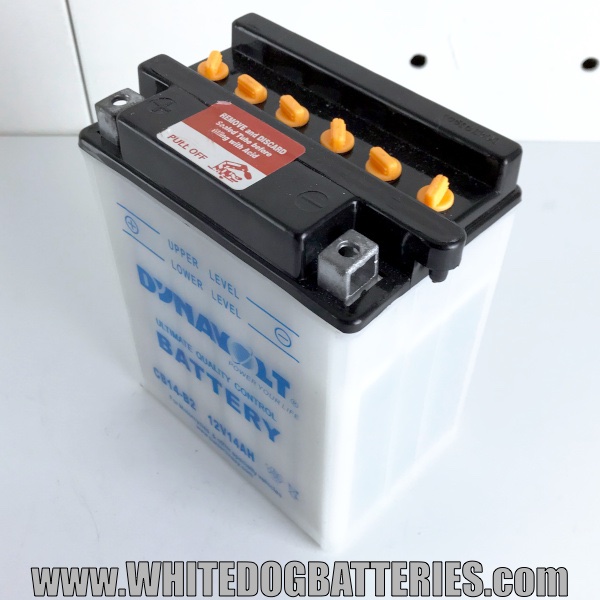
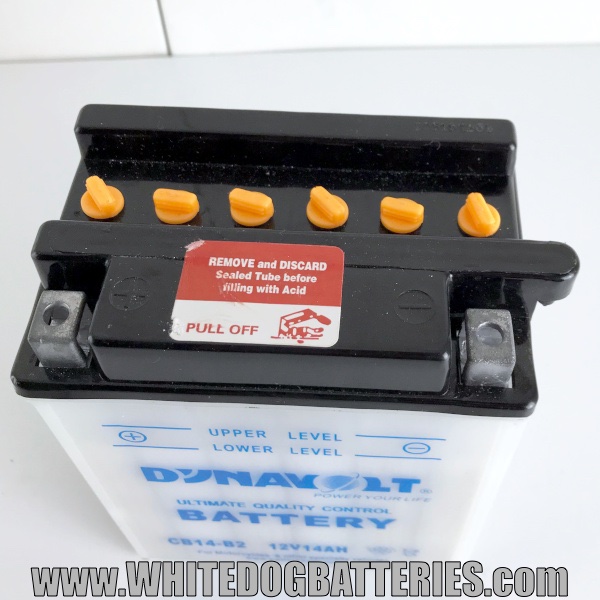
Front and side views of a CB14L-A2 motorcycle battery
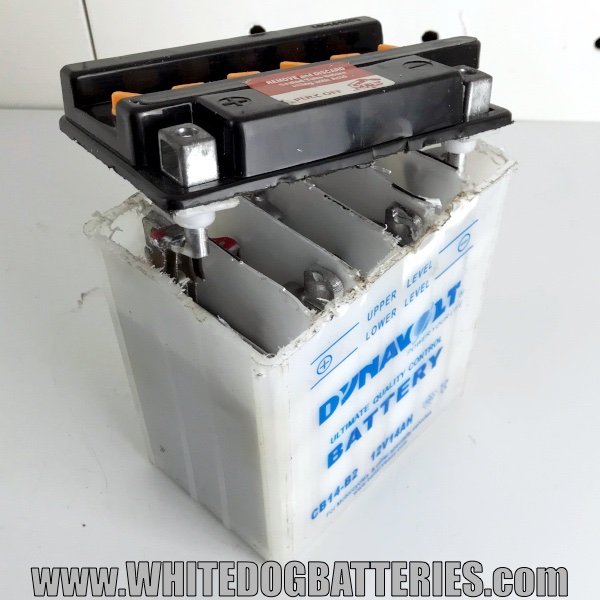
Cutting the top off the motorcycle battery
We removed the top and cut through the heavy duty posts that connect the terminals to the plates.
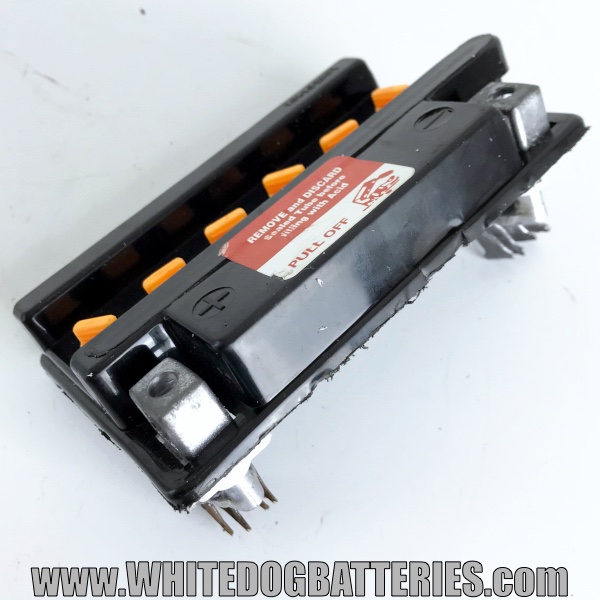
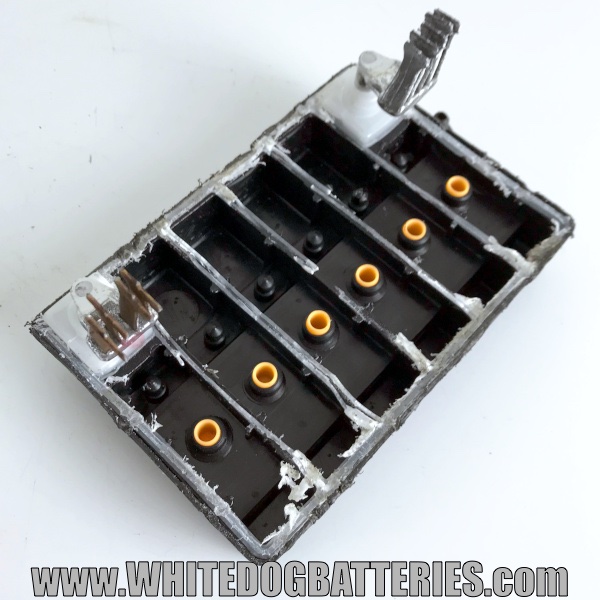
The battery top
The inside of the battery top, this part was glued to the top of the battery casing and you can see the 2 heavy duty posts that attach to the positive (+) and negative (-) terminals, the 6 battery cell caps (for filling and topping up the battery) and the vent at the top of the picture.
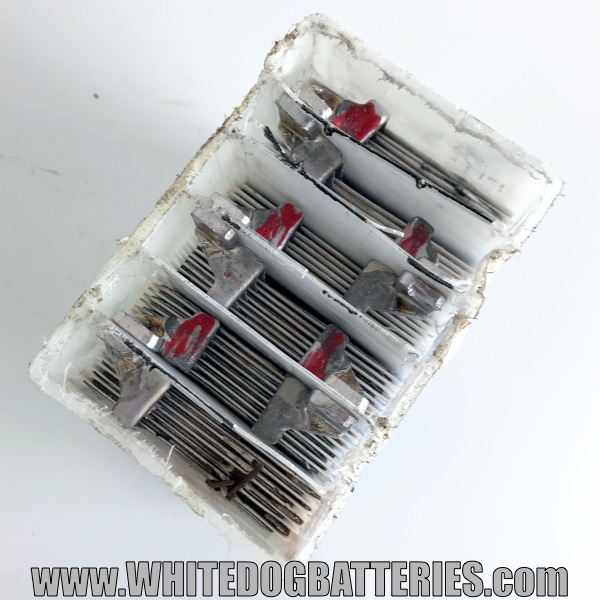
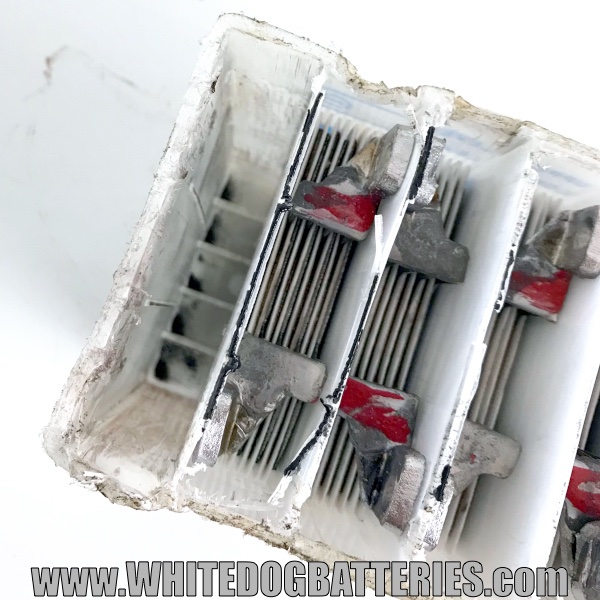
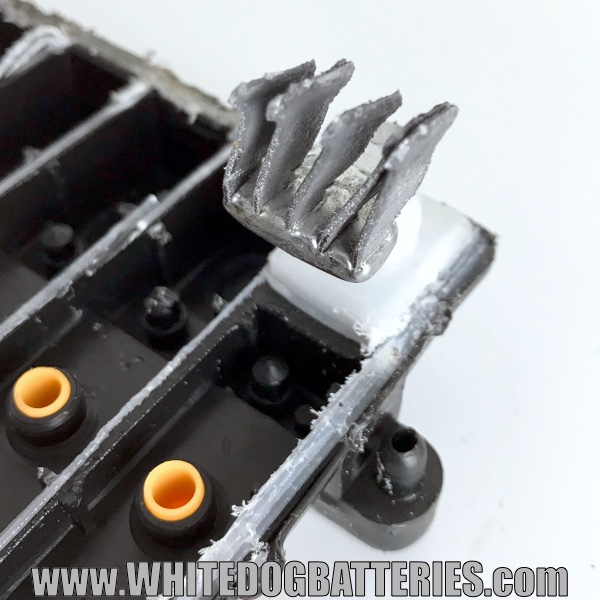
Inside the battery lower casing
The internals of the 12 volt battery. In the pic above you can see where the heavy duty posts attach connecting the plates to the terminals, also through the middle/top of the battery you can see how the plates in each cell are connected to each other.
This battery, being a 12 volt, has 6 cells, each cell should be capable of producing around 2.2 volts (which makes approx over 13 volts in total).
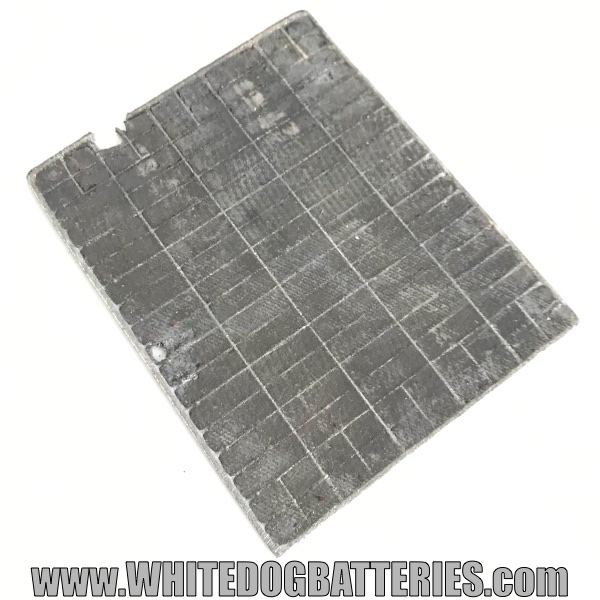
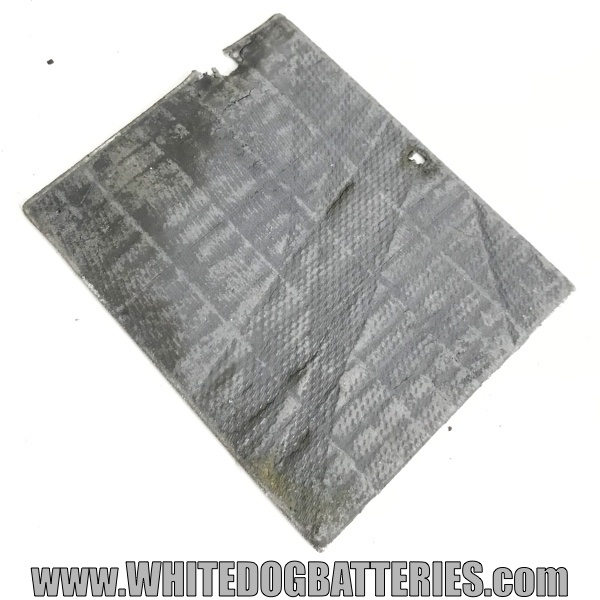
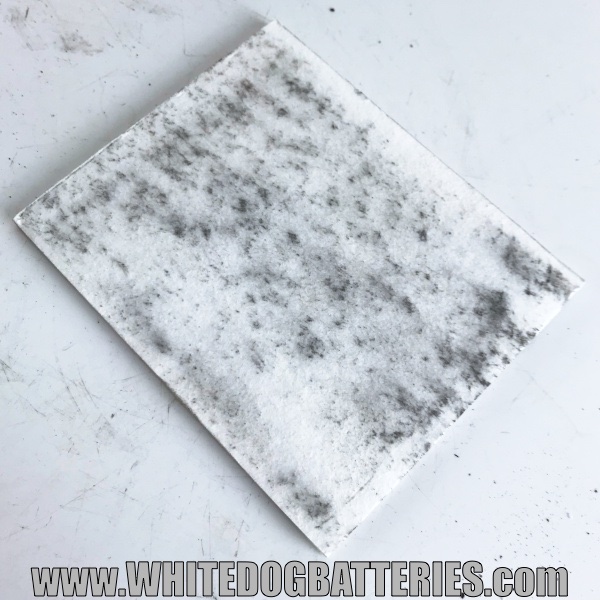
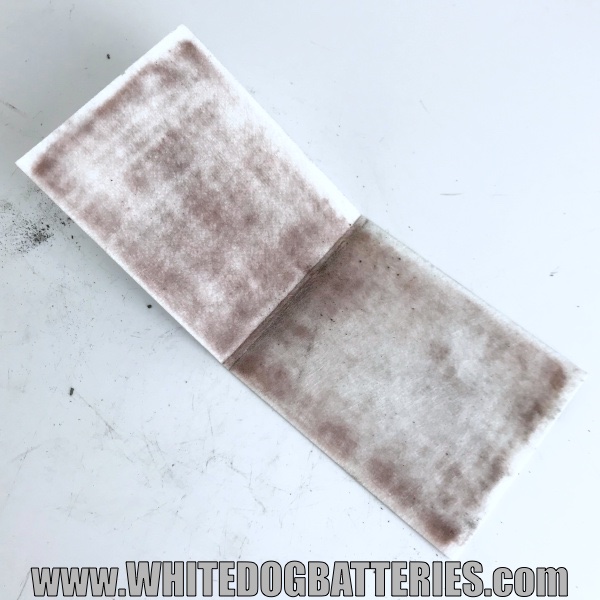
Lead plate parts from inside the battery
The insides of 1 of the battery cells. This were the lead plates from the end cell so you can see where the terminal posts would attach. You can also see in the top/center of the plates where they would be connected to the other 2 cells.
You can also see the bars across the center/top where the positive and negative plates are joined together.
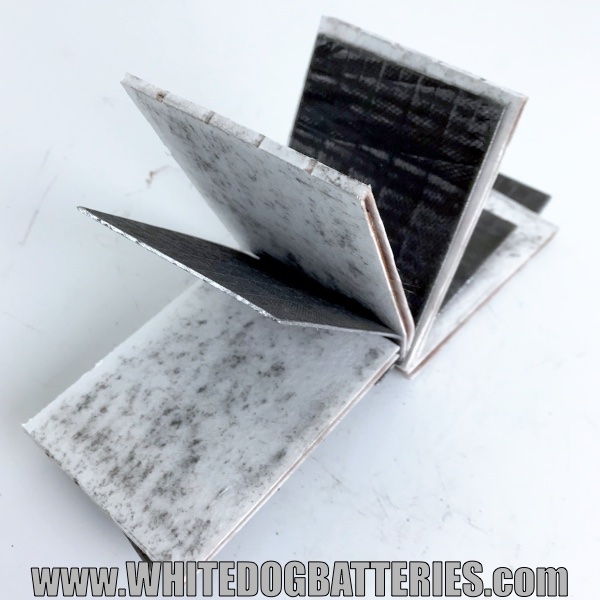
The lead plates spread apart
This pic shows the lead plates and the absorbant separator material used to separate the plates from each other.
Disclaimers:
The information provided on this page is ‘to the best of our knowledge’ and should not be taken as 100% accurate!!
To keep this page as a free resource for people to use, there are affiliate links (mainly Amazon) throughout the article. These affiliate links help maintain the cost of running this blog (basically, if you visit Amazon through one of the links and buy something, we make a few pence!).

Leave a Reply